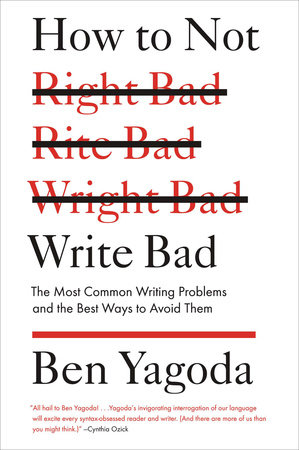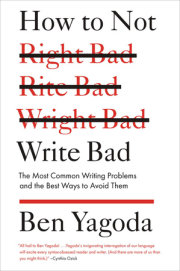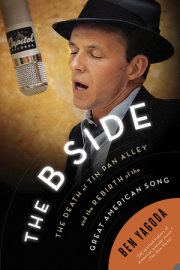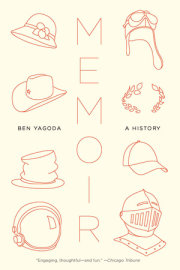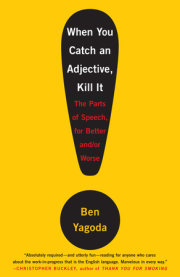Praise for Memoir: A History
"Spirited... Yagoda's incisive exploration is a worthy study of a genre that even now cannot completely be defined." -- Los Angeles Times
“Perceptive, thorough, and amusing.”-- New York Magazine
“This idea-driven cultural criticism leads to all kinds of interesting places.” -- Christian Science Monitor
“Ben Yagoda is one of the most subtle—and entertaining—writers about writing one can find. His history of the memoir reads between the lines—and the lies—with illuminating precision.” —Ron Rosenbaum, author of Explaining Hitler and The Shakespeare Wars
“We owe Ben Yagoda such a huge debt of thanks: his witty, comprehensive, and insightful ‘biography’ of the form reminds us why the memoir matters – and will continue to matter as long as humans think, read, and write. This is literary criticism at its lively best.” —David Friedman, author of A Mind of Its Own: A Cultural History of the Penis and The Immortalists: Charles Lindbergh, Dr. Alexis Carrel, and Their Daring Quest to Live Forever
“A shrewd and witty history of memoir sweeps us from Julius Caesar to James Frey. Our guide, Ben Yagoda, is always fine company, with just the right word, kindly good judgment, and another great story coming up on the next page. It's a splendid journey.” —Richard Ben Cramer, author of Joe DiMaggio: The Hero’s Life and How Israel Lost: The Four Questions
"Fascinating… With its mixture of literary criticism, cultural history and just enough trivia, Yagoda’s survey is sure to appeal to scholars and bibliophiles alike.” – Publishers Weekly (starred review)

